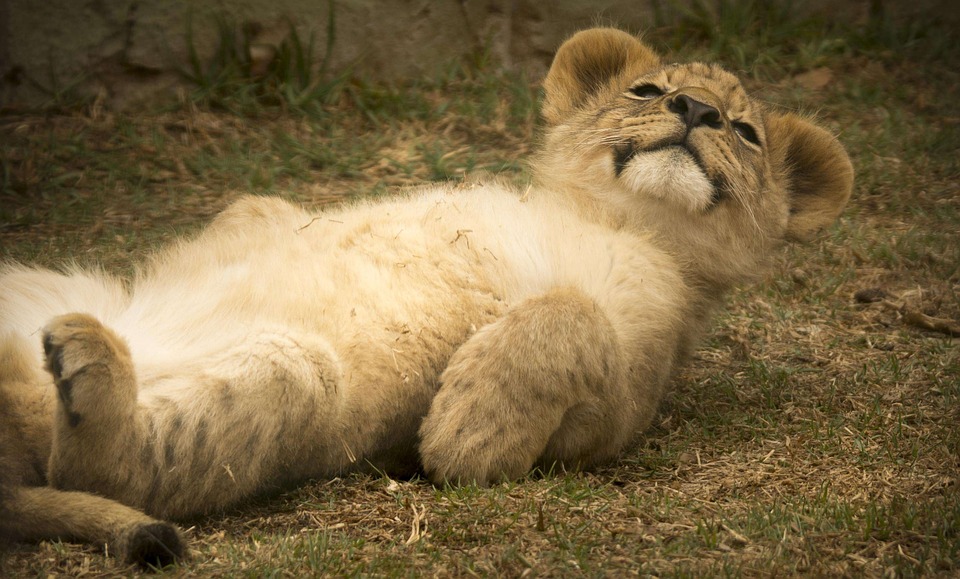Preventing and Managing Common Dental Problems in Kittens with Baby Teeth
Introduction:
Dental health is not only important for humans but also for our furry friends, including kittens. Just like us, kittens can experience various dental problems that can cause discomfort and affect their overall well-being. In this article, we will discuss how to prevent and manage common dental problems in kittens with baby teeth.
Proper Oral Hygiene for Kittens:
Brushing your kitten’s teeth is one of the most effective ways to maintain their dental health. However, it’s essential to choose the right toothbrush and toothpaste specifically designed for kittens. The toothbrush should have soft bristles and a small head to fit their tiny mouths. Similarly, the toothpaste should be formulated for kittens, as human toothpaste can be toxic for them. Brushing their teeth should be done gently and gradually, allowing them to get used to the process.
If your kitten is not comfortable with brushing, you can also use dental wipes or oral gels that are specially made for kittens. These products help remove plaque and freshen their breath. Additionally, providing dental chews and toys can contribute to their oral hygiene by promoting chewing and reducing tartar buildup.
Signs and Symptoms of Dental Problems:
It’s crucial to be aware of the signs and symptoms that indicate dental problems in kittens. Some common signs include bad breath (halitosis), excessive drooling, difficulty eating or chewing, pawing at the mouth or face, swollen or bleeding gums, and discolored or broken teeth. If you notice any of these symptoms, it’s essential to seek veterinary attention promptly.
Preventing Dental Problems:
Prevention plays a significant role in maintaining your kitten’s dental health. Regular veterinary check-ups are essential, as the vet can detect any dental issues early on and provide appropriate treatment. Proper nutrition and feeding habits are also crucial. Feeding your kitten a balanced diet that supports their dental health, such as wet or soft food, can help prevent tartar buildup. Additionally, providing clean water and avoiding hard food and treats can contribute to their dental well-being. It’s also important to limit sugary foods, as they can contribute to tooth decay.
Managing Dental Problems:
In some cases, despite preventive measures, kittens may still develop dental problems. If this happens, there are various management options available. Dental cleanings performed by a veterinarian can remove tartar and plaque buildup. In severe cases, tooth extraction may be necessary to alleviate pain and prevent further complications. Antibiotics may be prescribed if there is an infection present. Additionally, pain management options can be provided to ensure the kitten’s comfort during the recovery process. It’s important to follow the post-care instructions provided by the veterinarian to promote proper healing.
Frequently Asked Questions (FAQs):
1. When should I start brushing my kitten’s teeth?
It’s best to start brushing your kitten’s teeth when they are young, around 8-12 weeks old. This allows them to get used to the process early on.
2. What toothbrush and toothpaste should I use for my kitten?
Choose a toothbrush with soft bristles and a small head designed for kittens. Similarly, use toothpaste specifically formulated for kittens, as human toothpaste can be toxic for them.
3. How often should I brush my kitten’s teeth?
Ideally, you should aim to brush your kitten’s teeth daily. However, if that’s not possible, aim for at least 2-3 times a week.
4. Can I use human toothpaste for my kitten?
No, you should never use human toothpaste for your kitten. Human toothpaste contains ingredients that can be toxic to them. Always use toothpaste formulated for kittens.
5. Are there any alternative options to brushing?
If your kitten is not comfortable with brushing, you can use dental wipes or oral gels specifically made for kittens. These products help remove plaque and freshen their breath.
6. What signs indicate that my kitten has dental problems?
Signs of dental problems in kittens include bad breath, excessive drooling, difficulty eating or chewing, pawing at the mouth or face, swollen or bleeding gums, and discolored or broken teeth.
7. How can I prevent dental problems in my kitten?
Regular veterinary check-ups, proper nutrition, providing clean water, avoiding hard food and treats, and limiting sugary foods can help prevent dental problems in kittens.
8. Can kittens lose their baby teeth?
Yes, kittens do lose their baby teeth, and they are usually replaced by their permanent teeth. This process typically occurs between 3 and 9 months of age.
9. Is it normal for kittens to have bad breath?
While some mild odor is normal, persistent bad breath in kittens can indicate underlying dental problems such as gum disease or tooth decay.
10. What should I do if my kitten has a broken tooth?
If your kitten has a broken tooth, it’s important to seek veterinary attention as soon as possible. The vet will determine the best course of action, which may include tooth extraction or other necessary treatments.
Remember, maintaining your kitten’s dental health is crucial to their overall well-being. By following these preventive measures and seeking veterinary assistance when necessary, you can ensure your furry friend has a lifetime of healthy teeth and gums.








